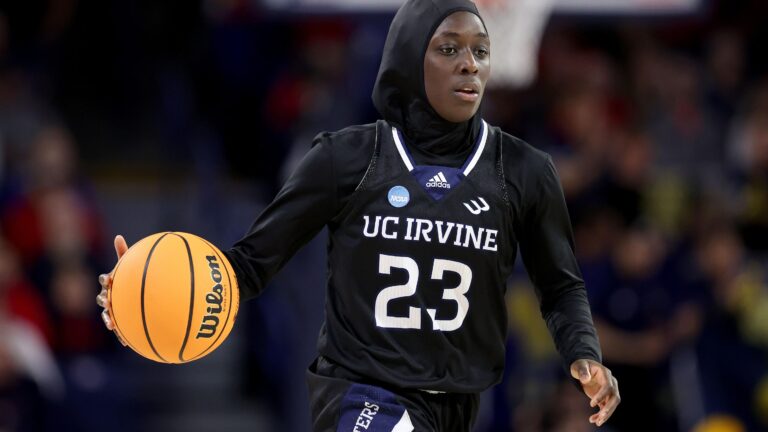Amnesty International has issued a stark warning against FranceŌĆÖs proposed ban on the hijab in all sports, labeling the measure a violation of human rights and an act of discrimination targeting Muslim women and girls. The international human rights organization argues that the move not only undermines principles of equality and freedom of religion but also risks marginalizing a significant segment of the population in the countryŌĆÖs sporting arenas. As the French government debates the legislation, the controversy underscores ongoing tensions around secularism, religious expression, and minority rights in contemporary France.
France Hijab Ban in Sports Sparks Human Rights Concerns
Recent legislative measures in France have sparked widespread concern among human rights advocates who argue that banning the hijab in all sports activities infringes upon fundamental freedoms. The policy is seen as disproportionately affecting Muslim women and girls, potentially excluding them from participating in public sporting events. Amnesty International emphasizes that such a blanket prohibition not only restricts freedom of religion but also undermines the principles of inclusivity and diversity that sports aim to promote.
Critics point out that the ban risks fostering discrimination by singling out a religious symbol uniquely worn by Muslim minorities, thereby exacerbating social divisions. Key concerns include:
- Violation of freedom of expression: Compelling athletes to remove religious attire restricts personal and cultural identity.
- Impact on equal opportunity: Muslim girls may feel marginalized and deterred from engaging in sports.
- Potential for societal exclusion: Reinforcing stigmatization risks alienating entire communities.
The debate highlights the challenge of balancing secular principles with respect for religious rights in a pluralistic society.
Amnesty International Warns Policy Targets Muslim Women and Girls
Amnesty International has expressed deep concern over the proposed legislation that seeks to impose a comprehensive hijab ban in all sporting activities across France. According to the organization, such measures are not merely restrictive but constitute a direct infringement on the fundamental human rights of Muslim women and girls. The policy, they argue, unfairly singles out religious attire, stripping individuals of their autonomy and freedom of expression, rights that are protected under international human rights law.
The impact of this ban extends beyond sports, potentially fostering an environment of exclusion and discrimination. Amnesty International highlights key issues:
- Targeted discrimination: The law disproportionately affects Muslim communities, reinforcing stereotypes and social marginalization.
- Violation of religious freedom: Prevents individuals from practicing their faith openly and without fear.
- Psychological and social consequences: Limits participation and access to public life, particularly for young girls eager to engage in physical activities.
| Aspect | Impact |
|---|---|
| Freedom of Expression | Suppressed through mandatory dress codes |
| Inclusion in Sports | Reduced participation from minority groups |
| Social Cohesion | Potentially weakened by exclusionary practices |
Impact of the Hijab Ban on Inclusion and Diversity in French Athletics
The enforcement of a hijab ban in French athletics has deepened existing barriers to inclusion and diversity within the sporting community. Muslim women and girls, who often view sport as a path to empowerment and social engagement, face exclusion under such policies. By effectively barring religious expressions, the ban not only limits participation but also sends a message that cultural and religious identities are unwelcome, undermining the core values of diversity that many institutions strive to uphold.
Beyond individual impact, the ban risks narrowing the talent pool and diminishing the richness of cultural representation in French sports. This exclusionary approach contrasts sharply with global movements encouraging multiculturalism and respect for religious freedoms. Key consequences include:
- Reduction in Participation: Muslim female athletes may withdraw or avoid competition altogether.
- Erosion of Team Cohesion: Lack of diversity can affect team dynamics and public perception.
- Negative International Image: France risks criticism for violating human rights and lacking inclusivity.
| Aspect | Effect of Hijab Ban |
|---|---|
| Athlete Participation | Significant decline among Muslim women |
| Cultural Representation | Reduced visibility of religious diversity |
| Human Rights Standing | Increased criticism from rights groups globally |
Calls for Policy Reforms to Uphold Religious Freedom and Equality
Amnesty International has highlighted that the proposed blanket ban on the hijab in all sports within France not only infringes on basic human rights but also disproportionately targets Muslim women and girls. This policy risks marginalizing a significant portion of the population by restricting their freedom to participate fully in society through sports, an area vital for inclusion and personal development. Human rights experts stress that such measures violate the principles of religious freedom and equal treatment under the law.
Advocates for reform urge lawmakers to consider alternative approaches that respect cultural and religious identities while promoting equity. Key recommendations include:
- Ensuring sports regulations accommodate religious headwear without compromising safety or fairness
- Implementing training programs for sports organizations on cultural sensitivity and anti-discrimination practices
- Establishing independent oversight committees to prevent biased enforcement of dress codes
| Policy Aspect | Current Impact | Proposed Reform |
|---|---|---|
| Religious Expression | Restricted in sports settings | Protected and accommodated |
| Participation | Decline in Muslim female athletes | Increased inclusivity and access |
| Human Rights Compliance | Potential violations noted | Aligned with international standards |
In Summary
As the debate over the hijab ban in French sports continues to unfold, Amnesty InternationalŌĆÖs latest report underscores the serious human rights concerns at stake. The organization argues that a blanket prohibition not only infringes on freedom of religion and expression but also disproportionately targets Muslim women and girls, deepening social exclusion. With significant repercussions for inclusivity and equality in sports, the controversy highlights the broader tensions in FranceŌĆÖs approach to secularism and minority rights. Observers will be closely watching how policymakers respond amid mounting pressure from human rights advocates calling for respect, tolerance, and the protection of fundamental freedoms.




